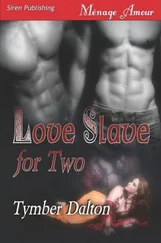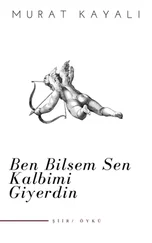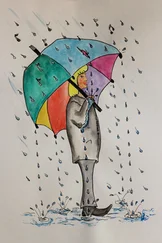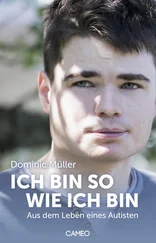Another addition came from our new troop sergeant major, Stormin’, who obtained a half-dozen cases of bottled water and several empty five-gallon water cans for use as portable urinals during the trip. The guys were always thinking.
By the time we were ready, we reckoned that our trucks were at least as comfortable as the Trojan gift horse.

While we had discussed the final plan, the boys positioned the equipment and inspected the rigging of the tarps. We couldn’t afford any light holes that might compromise us as we drove through busy downtown market streets or crossed through the few expected rural roadblocks and checkpoints that defined tribal lines, for a Trojan horse operation is all or nothing.
If compromised, the gig is up right then and there. One has little choice but to come out swinging and hope for the best. If this happened, we would unass the truck as quickly as possible, eliminate any threat, and hightail it to the nearest building and own it. Once inside, we would turn it into a stronghold by occupying the roof and covering all windows and doors. Then a radio call to our teammates and Rangers back at Bagram would bring us the beautiful, thundering sound of the 160th SOAR birds.
Regardless of what we did after being compromised, if we weren’t within sprinting distance of the target, we were likely facing mission failure, something that we and our commanders did not look upon too favorably.
One thing was certain. We would not come out of those trucks with our hands up in surrender.

We settled in for a long trip as our little convoy made its way south from the airport and left the city limits, packed like sardines in a can, moving only from one ass cheek to the other to ease the discomfort. It was impossible not to think of how many of us would be hit if a burst of AK-47 rounds stitched the side of the truck and ripped through the protective walls that had been cobbled out of thin metal and cloth tarp. Enemy bullets aside, we were at the mercy of our Afghan driver’s total lack of offroad skill. He consistently seemed to aim for the dark spots in the road and drop two tires into every pothole in the broken asphalt or intentionally bounce over every big rock.
After the first of an expected seven hours traveling at the pace of a one-legged snail over the severely rocky roads, we were certain that we were developing lower back pains for life. Some of the guys fiddled with pieces of their weapons, and the bottled water went quick because we all knew to hydrate for the expected climb that night. The urine cans were wrestled back and forth.
The boys, focused on the mission, could spend but a few moments thinking of their wives and kids back home before automatically switching back to mentally review the various mission contingencies briefed and rehearsed during the planning phase. I’m sure some of them took time to secretly curse me for getting them into this, but I ignored that, keeping my attention glued to the map that I held in one hand and the Garmin GPS in the other.
As we approached the first checkpoint, our communicator, Gadget, manipulated his satellite antenna to the appropriate azimuth and angle, then whispered into his mike. “Wrangler Zero-One, this is Rascal Zero-One. Checkpoint one, over.”
His call was monitored by the Joint Operations Center back at Bagram, where our current location was plotted. Important information should we run into trouble. Help was several hours away, and the Ranger cavalry could only fly to the rescue if they knew where we were.
As expected, the first checkpoint proved fairly simple to pass. The guards stopped us and questioned the Afghan driver as to where the supplies were headed. We glanced at each other as the white beams of several flashlights danced over the tarps and supplies while our driver awaited permission to proceed. Beside him in the front passenger seat, Ski held his breath, as did all of us hiding back in the belly of the horse. In less than a minute, we were on our way.
Several uneventful hours later, we arrived at the second checkpoint, which separated two tribes that had been feuding for centuries in Nangarhar Province. These guards probably would be more aggressive and might decide to help themselves to a small portion of our cargo, which would reveal our perfidy.
As we approached, we reached up with our nonfiring hands, lowered our NVGs, and the world went lime green. With weapons at the ready, we sat as still as bronze statues when the trucks slowed to a halt.
Afghans scuffled around both sides of our truck and several voices barked orders or directions in deep native Pashto. From the front seat, Ski keyed his radio and whispered, “It appears some local commander is here, and they went to ask him if the truck can pass. Stand by.”
Long minutes passed as we attempted to regulate our breathing while listening intently for anything out of the ordinary, for there was cause for concern. The flashlights outside had become steady beams on the tarps and the supplies in the back. Suddenly, the truck rocked as a guard leaped up on the tailgate, squatted, and spoke to the others. There was no need for me to alert the boys that we were moments from a major showdown and possibly a gunfight. The situation had everyone’s undivided attention.
Risking being overheard by someone unseen in the darkness outside the truck, Ski keyed his radio again and softly whispered, “Sounds like we are okay. Local commander told them to let us through.”
I could feel the collective silent sigh of relief and relaxing of muscles as we eased an inch or two back into our sponge mattresses. We pressed ahead. Hydrated more. Wrestled the cans.
We reached the final checkpoint five hours into the trip, and things picked up. The sedan of militiamen zoomed around us on the shoulder of the dirt road and we stopped and waited inside our trucks tense with anticipation as the empty minutes ticked away. After about ten minutes of waiting, Ski saw red lights blinking the okay signal in the distance and we continued forward.
As we went by the checkpoint, only Ski and Shrek, in the truck cabs with the drivers, had the luxury of seeing the guards wrapped up snugly in blankets the militiamen gave them as gifts. Everyone was sitting around a small warming fire while one of the militiamen brewed up some hot tea to cut the sharp edge of the cold Afghan winter. They looked like one big happy family at a hometown cookout.
Three checkpoints behind us, so far so good, but we were not clear yet. It was imperative that the trucks continue looking innocent and routine because we had been warned of a heavy machine gun emplacement a few hundred meters above the mouth of the valley. We had to pass right under its nose, and once committed on that road, places to bang a U-turn would be scarce, particularly while being shot at. The trucks rolled on, unmolested. Our cover was holding.
Ski came up on the net. “Ten minutes.”
I folded my map, shoved it in my chest pocket, powered off my GPS, and stuck it in its pouch. I wouldn’t need either item because Shrek and Ski had coordinated for a CIA source, a local carpenter’s assistant, as a guide, and he was to be waiting for us.
I reached up to manipulate my NVGs, as I had done hundreds of times before, and the goggles fell off my helmet. “Shit! Of all the times, not now,” I whispered. A close look showed that the screws that attached the mounting bracket to the helmet had vibrated loose during the rollercoaster ride, and in the darkness the tiny screws were nowhere to be found. Coming to grips with the idea of having to rely on my own vision, on a hunch I sent out a net radio call asking if anyone had a roll of tape. A moment later a gloved hand appeared in the darkness clutching a roll of black electrical tape. Four wraps around my helmet and the goggles held like a charm.
Читать дальше














